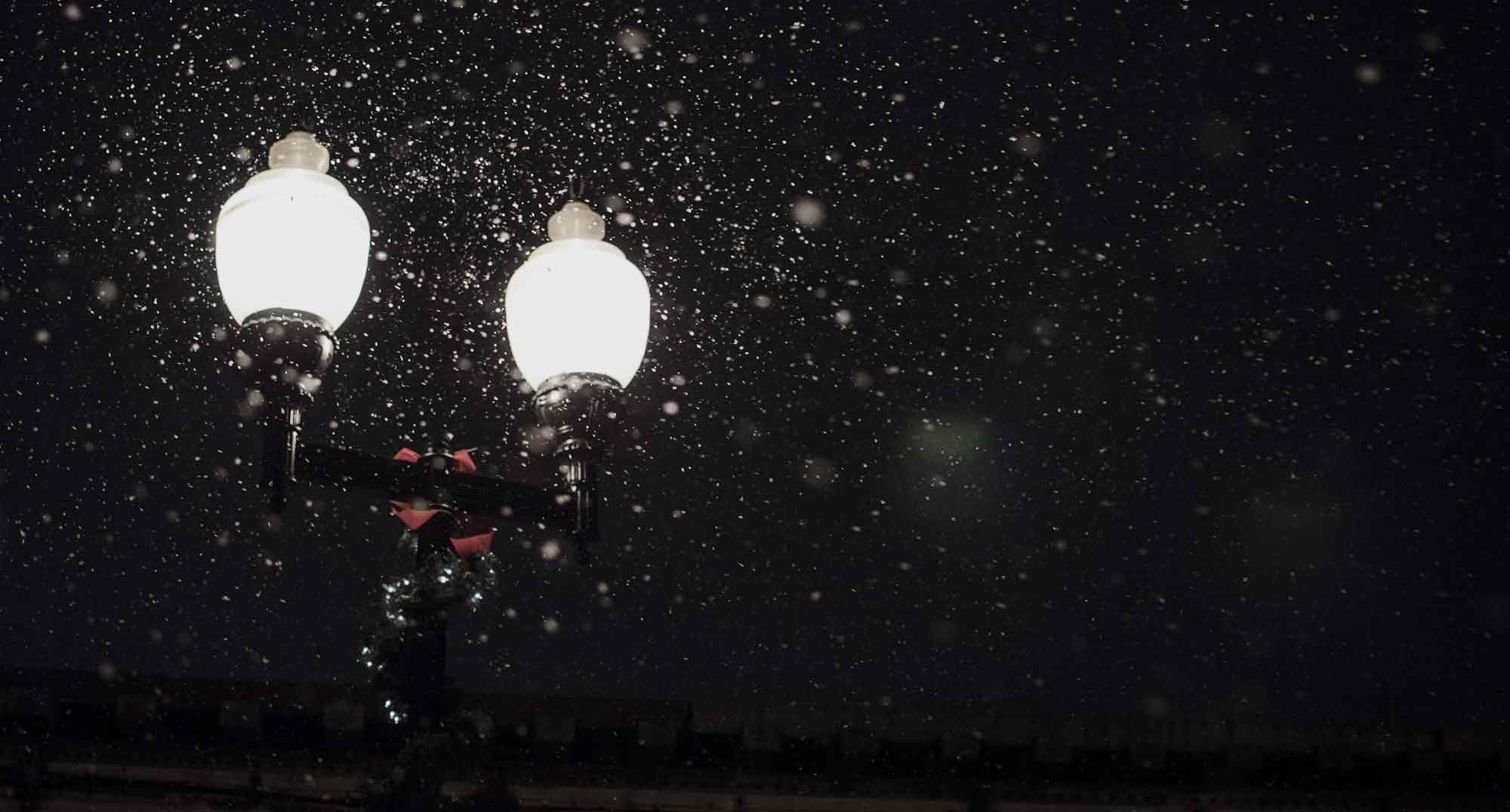LEAH FARISH | GUEST
In the darkest season of my life, I was lifted decisively out of the pit by a passage in the book of Hebrews. The three simple commands embedded in it made all the difference.
Like many crises, mine was a wreck of multiple trains. My legal work on a case had provoked opposition that descended to the level of criminal threats against me and my client. Physically, I was dangerously fatigued and in pain. Travel upheavals had left me on a different continent from my husband and children. It was almost Christmas, and a snowstorm made even church attendance unlikely.
I opened my Bible to Hebrews 10, and this is what I read:
Therefore, brothers,] since we have confidence to enter the holy places by the blood of Jesus, by the new and living way that he opened for us through the curtain, that is, through his flesh, and since we have a great priest over the house of God, let us draw near with a true heart in full assurance of faith, with our hearts sprinkled clean from an evil conscience and our bodies washed with pure water. Let us hold fast the confession of our hope without wavering, for he who promised is faithful. And let us consider how to stir up one another to love and good works, not neglecting to meet together, as is the habit of some, but encouraging one another, and all the more as you see the Day drawing near. (vv. 19-25)
Three phrases stood out to me, leading me like flashing beacons in an icy night:
Draw near
With these two short words I was summoned into God’s presence. The fire in those words of Hebrews warmed me. I had been asking for so many things, and now I could see I was being welcomed not just to speak to the Lord, but to climb up in his lap and feel his embrace. My heart was broken and fearful, but I remembered, “The Lord is near to the brokenhearted” (Ps. 34:18), and that if I draw near to him, he will draw near to me (James 4:8).
Why does one person draw near to another? To see the person more clearly, to be identified with them, to give or take something, to share warmth, to hear them better. Shivering in that big, empty room where I was so alone, I had all those reasons to draw near. I sensed that he was nearer than my troubles were.
When we draw near to God, we can hear even a whisper from his word—a whisper such as, “Let not your heart be troubled (John 14:1)….Come to me, all who labor and are heavy laden, and I will give you rest (Matt. 11:28)…..I have said these things to you, that in me you might have peace. In the world you will have tribulation. But take heart; I have overcome the world” (John 16:34).
Hold fast
It is always surprising to me when people in crisis decide that it’s a good time to forsake all the truth they have known. Yet at my lowest point, I did wonder: is the gospel true? Is it for me even now? Is it enough?
At one point in the Gospels, Jesus asks his disciples, “Will you also leave me?” And they answer, “Where else would we go, Lord?” (John 6:67-8) Not much more than faint praise there—but it was enough to keep them walking along with him (John 16:33).
Hold fast: Seeing those words in Hebrews held me fast. I remembered that God had led me to that point, and though I wasn’t perfect, I knew he was still Lord. He was the best I had to offer the situation I was in; I surely had nothing of myself to give.
Part of the darkness of a dark situation is confusion. A sudden tragedy is disorienting. A frightening menace can make us forget what we learned in comfort. But recognizing doubt is half the battle.
My father was a commercial pilot. He told me that inexperienced pilots would sometimes crash in storms because they couldn’t believe their controls. Suddenly they would rely on their own muddled perceptions and think they were right side up when they were upside down—just when they needed to hold fast to the truth and training that could guide them out of the storm.
So I kept reading Scripture during those days, forcing myself to think God’s thoughts, and “not even judging myself,” as Paul might say. (I Cor. 4:3)
Consider others
The last thing I wanted to do was nurture anyone else. And since the roads were icy, what could I do for anyone the next day—Christmas Eve?
I tried to pray for some people, and as I did, I remembered a single woman who had no family in town. I called her and asked if I could make her a holiday meal. She was courageous about driving on bad roads, having lived on the mission field in various places. She said yes, and could she bring a little girl whose refugee family was letting her visit? I was glad to double the attendance at my improvised feast. We had a joyful time!
My client and I made it out of that wilderness experience later with a great vindication. My family soon gathered once again. And I had already learned three things important things to do, which, through a time of trial, kept me steady: Draw near. Hold fast. Consider others.
Photo by Hide Obara on Unsplash
About the Author:
Leah Farish
Leah Farish is active in women’s ministry in Oklahoma, and in the Middle East and North Africa. She is a lawyer who would rather do stand-up comedy. Her husband and kids would prefer that she do that as well.

